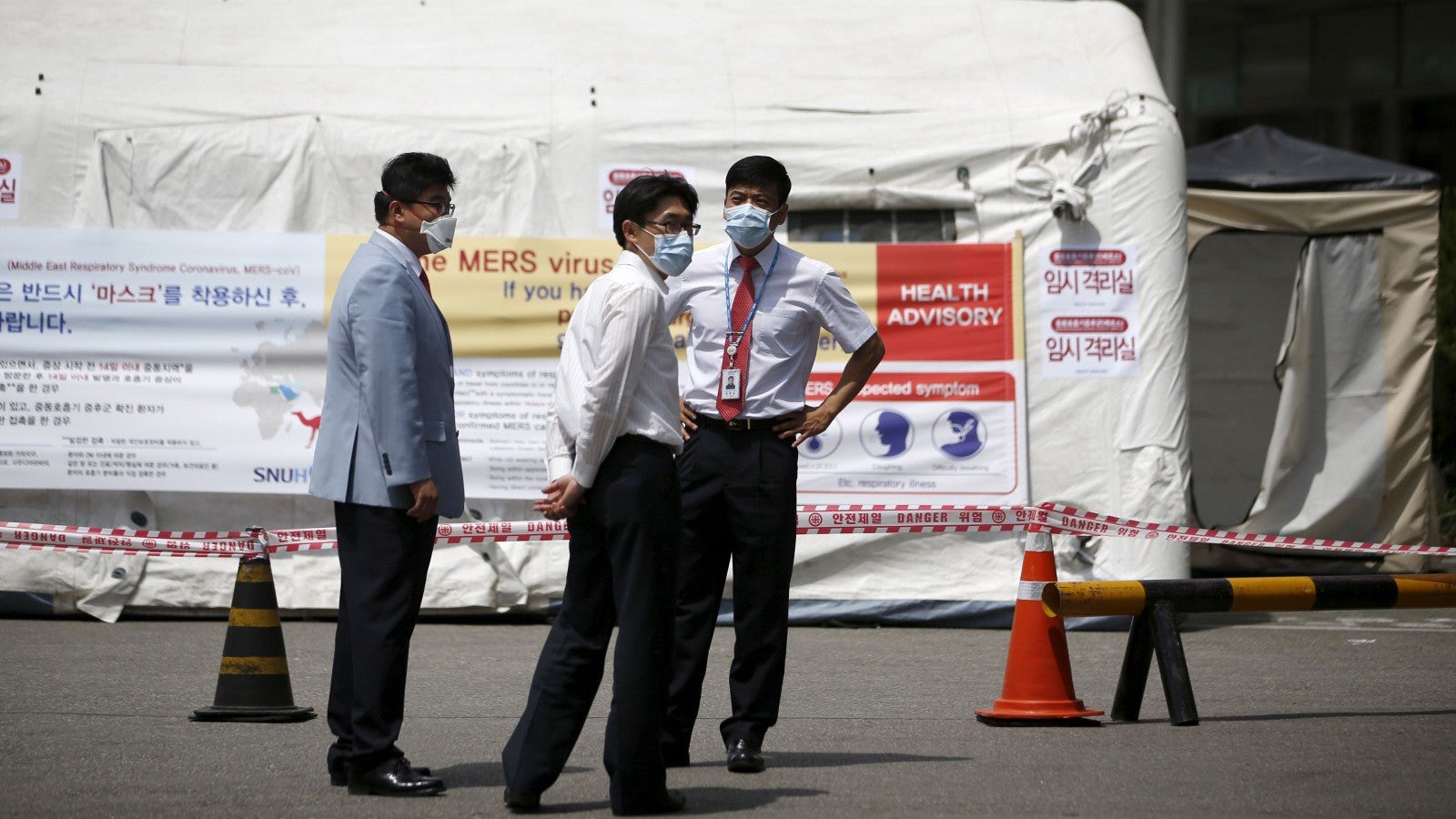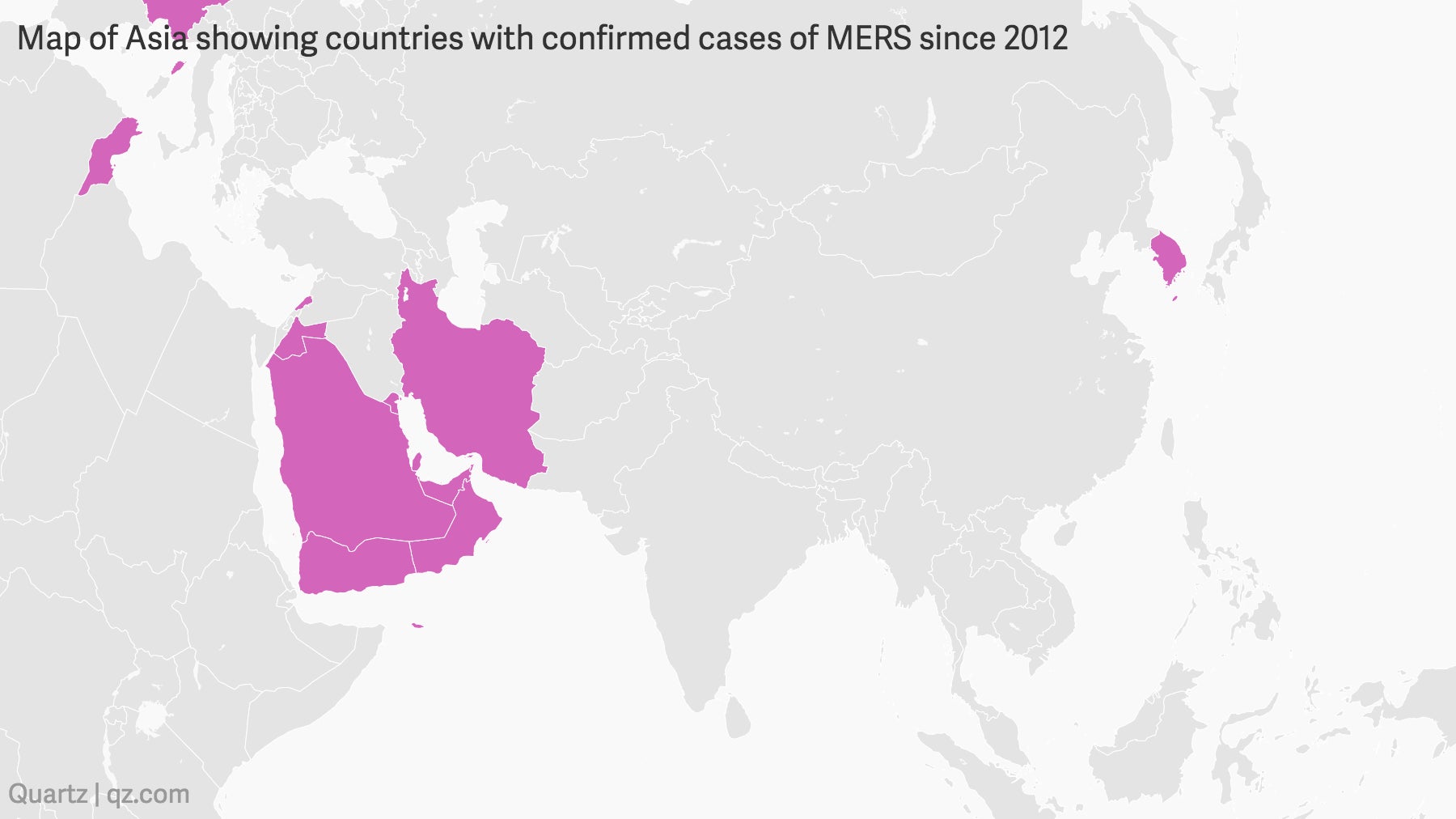South Korea has quarantined more than 1,000 people as the MERS virus spreads
Thirty people in South Korea have tested positive for Middle East Respiratory Syndrome (MERS), and officials are awaiting test results on 99 more suspected cases. In hopes of containing the outbreak, which is the largest ever documented outside the Middle East, the government has quarantined 1,364 people and temporarily closed at least 230 schools.


Thirty people in South Korea have tested positive for Middle East Respiratory Syndrome (MERS), and officials are awaiting test results on 99 more suspected cases. In hopes of containing the outbreak, which is the largest ever documented outside the Middle East, the government has quarantined 1,364 people and temporarily closed at least 230 schools.
The World Health Organization warns that there will likely be more confirmed cases. “Given the number of clinics and hospitals that cared for the index case, further cases can be expected,” WHO said in a bulletin published on June 2. Of the 30 cases identified so far, two patients have died and three are in critical condition.

MERS was first identified in 2012 in Saudi Arabia, where new cases are still common—there were 57 in February 2015 alone. Until recently, no other nations had seen serious outbreaks of the virus, which is related the SARS virus but is considerably more deadly. MERS had been thought to be less easily transmitted between humans than SARS and the common cold, which was why the current situation in South Korea is a surprise to epidemiologists.

Scientists are “fascinated” by the way MERS is spreading in Asia right now, wondering if and why it is more contagious than expected in South Korea—and especially what will happen in mainland China, where one MERS patient has been hospitalized after traveling from South Korea.